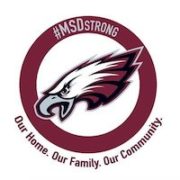Reading Facial Expressions
But I don’t really know…
As we get older, we typically begin to learn how to understand others’ emotions, even without words. Whether it’s a frown or a bright smile, our faces can tell a lot about our current thoughts and emotions to the people we are around without even speaking. It can show others if we are feeling happy or sad, or if we are in the mood to talk or not, which can be especially helpful when in a social setting. This skill can allow us to properly respond to how our friends and peers are feeling, while also making the interaction comfortable for both parties since if you can read facial expressions, you can identify how to act around that person properly, all without words.
However, for those with neurodivergent traits, reading facial expressions can be difficult. They may find it hard to directly pinpoint an emotion to an expression, so at times, they may not realize they had said something to upset their peers or are socializing with someone who may be having a bad day, which can deter them from wanting to socialize at all. Whether they are in elementary, middle, high school, or about to go into college, reading facial expressions is a crucial skill to have. It can guide them to react and say the proper things in certain social situations, help them make and maintain friendships, as well as feel confident in their ability to react properly to the other person in the conversation. Without it, kids, teens, and young adults may feel as if socializing is too stressful, which can cause them to want to avoid it all together before leading to other issues such as isolation, depression, anxiety and many more. Yet, even if they may be struggling, this skill can be taught and generalized into many different social settings.
At the Support for Students Growth Center, we provide the social, behavioral, emotional, and executive functioning skills children, teens, young adults, and their families need for a happy and successful life in and out of school settings. Our team of professionals offers individualized and family coaching/counseling and social skills groups to help teach skills such as how to be actively reading others facial expressions and body language to ensure parents do not have to worry that their kids will be unable to make and maintain friendships and utilize age appropriate social skills on their own. So, if your child is struggling with skills like the ones listed above and much more, the SSGC is equipped with the tools to help.
Click here and call now to schedule your FREE 20-minute individualized screening- $200 value
Dr. Eric J. Nach, Ph.D., M.Ed., A.S.D.C., is a Developmental and Behavioral Specialist who specializes in Autism, ADHD and related disorders. Dr. Nach is the founder of the Support for Students Growth Center and College Life Skills Program where he and his team of professional’s help develop the Emotional Maturity, Executive Functioning, Life Skill and Social Abilities of children, teens, young adults and college students and those high school students preparing for college.





